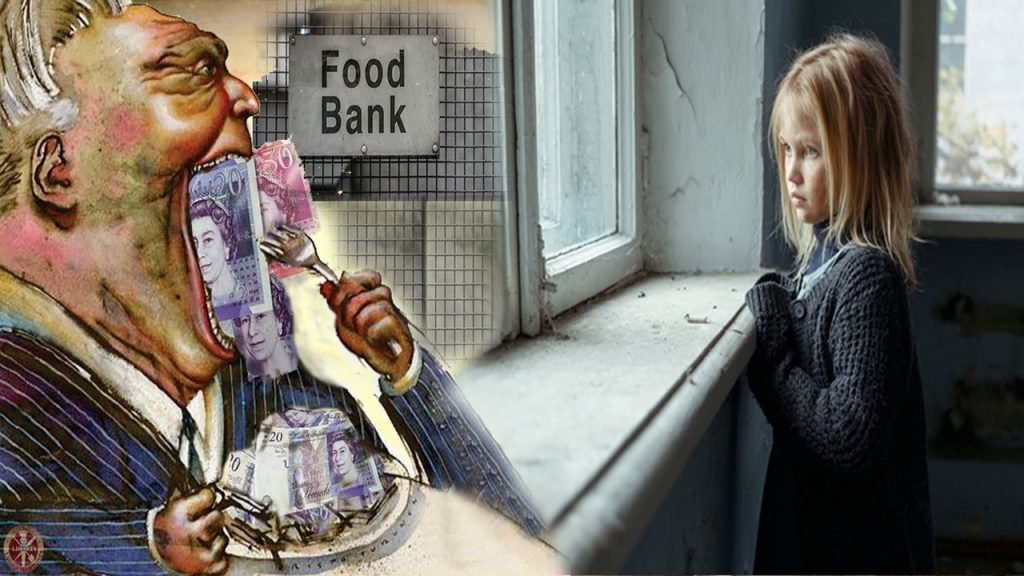Material Morality: The Hidden Lessons of Santa’s Gift Economy
The brilliant Diane Morgan, in her portrayal of Philomena Cunk in ‘The World According to Cunk‘, has a knack for revealing uncomfortable truths while deftly puncturing life’s small hypocrisies. In Cunk on Christmas, she delivers a particularly biting observation:
“The good children will get lots of presents and so, it turns out, will the bad children. In fact, the only ones who won’t get very much are the poor children. That’s because Santa judges a child’s goodness based largely on parental income.”
This satirical quip raises a deeper, troubling question: when we perpetuate myths like Santa, what broader messages are we embedding about value, worth, and morality?
Festive Inequality: What Christmas Teaches Kids About Class
Behind the festive glow of Christmas lies a harsh reality that Philomena Cunk’s satirical words capture with biting precision: Chrismas isn’t just a time of giving—it’s a season of social sorting. Beneath the surface of moral accounting, where Santa rewards “good” children, a more troubling calculus emerges. Children don’t merely receive gifts; they absorb a lived experience of their social standing. Wealth quietly becomes the ultimate measure of worth, a lesson taught not through explicit words but through the subtle, insidious rituals of the season.
Plenty of presents means you’ve been good…Are we, perhaps unknowingly, fostering belief systems that entrench social hierarchies—teaching children that material abundance equates to virtue and that some lives are inherently more “deserving” than others? These seemingly harmless traditions may plant the seeds of deeply rooted ideas about privilege, class, and systemic inequality.
If it’s not hard enough with TV ads pushing the latest ‘need to have product’ we are faced with a core value of capitalism that intertwines identity with consumption, equating personal worth to material wealth. This relentless cycle pressures individuals to seek status through possessions, fueling a culture of consumerism that reinforces these divides year after year.
How does this pan pot when we have such inequality in such a rich country?
Dr Neilson’s stark reporting in ‘The Big Issue‘ provides the damning statistical backdrop to this moral failure: “It should be shameful that this Christmas more than 159,000 children will be living in temporary accommodation. It should be a national conversation, an embarrassment the government tackles head on with urgency. Yet it remains a fringe conversation,”
Are these children not “good” children? Or do we now live in a world where their moral worth is measured solely by their parent’s ability to buy presents? At large this is not a failure of character or effort; it is the result of systemic forces that push families into precarious states of existence. Poverty for the working poor is not a reflection of personal failing but of structural inequities—inequities that persist because those in power choose to ignore or perpetuate them.

What makes this failure even more damning is that it continues to happen under a Labour government—a government many believed would champion equality and compassion. Labour had the opportunity to confront these injustices, particularly in relationship to children with Sir Keir Starmer’s refusal to abolish the third-child benefit cap betrays those hopes. This decision has earned him the bitter moniker “Sir Kid Starver,” a grim reflection of promises broken and priorities misplaced.
The third-child benefit cap is not merely a policy; it is structural violence inflicted upon society’s most vulnerable. This cruelty is compounded by the withdrawal of winter fuel allowances for pensioners, leaving millions facing even greater hardship this Christmas.
These policies are not abstract; they are again the lived realities, forcing families to make impossible choices between heating and eating during the festive season.
This is not a failure of policy design, but a deliberate choice. Each policy, each budgetary decision, becomes a mechanism of exclusion, subtly but powerfully shaping opportunities into scarce resources. These opportunities are then allocated not by merit, but by inheritance and social connection.
We pay our taxes, fund our institutions, and elect our representatives. In return, we demand a fundamental social covenant: a genuine commitment to equality of opportunity.
The fact that this commitment is consistently broken by successive governments is a constant and undeniable reality.
The social contract demands more. It demands that we acknowledge our interconnectedness and understand that a society that allows children to languish in poverty is a society that undermines its own future. Equality is not charity; it is not a gift to be bestowed. It is a fundamental right and a collective responsibility, essential to any genuine democratic project.
Material Morality: The Hidden Lessons of Santa’s Gift Economy
The fact is, Christmas narratives have always been more than stories; they are powerful moral frameworks encoding our deepest societal values. When we tell children that goodness is rewarded with material abundance, we are not just perpetuating a charming myth—we are constructing a worldview that normalises privilege, reinforces inequality, and teaches that scarcity is a sign of unworthiness.
This is more than a seasonal crisis. It’s a moment of reckoning with the stories we tell, the policies we enact, and the priorities we set. If Christmas is to mean anything, it should be a time to reflect on these injustices and recommit to a future where no child is left in the cold and no family is forced to endure the indignity of deprivation.
If we are to embrace a Christmas message, let it be one that reminds us the true measure of a society lies not in its wealth, but in how it cares for its most vulnerable. A future worth striving for is one where goodness is defined by the impact we have and the compassion we show—not by the amount of presents under a tree.
Support Independent Journalism Today
Our unwavering dedication is to provide you with unbiased news, diverse perspectives, and insightful opinions. We're on a mission to ensure that those in positions of power are held accountable for their actions, but we can't do it alone. Labour Heartlands is primarily funded by me, Paul Knaggs, and by the generous contributions of readers like you. Your donations keep us going and help us uphold the principles of independent journalism. Join us in our quest for truth, transparency, and accountability – donate today and be a part of our mission!
Like everyone else, we're facing challenges, and we need your help to stay online and continue providing crucial journalism. Every contribution, no matter how small, goes a long way in helping us thrive. By becoming one of our donors, you become a vital part of our mission to uncover the truth and uphold the values of democracy.
While we maintain our independence from political affiliations, we stand united against corruption, injustice, and the erosion of free speech, truth, and democracy. We believe in the power of accurate information in a democracy, and we consider facts non-negotiable.
Your support, no matter the amount, can make a significant impact. Together, we can make a difference and continue our journey toward a more informed and just society.
Thank you for supporting Labour Heartlands












